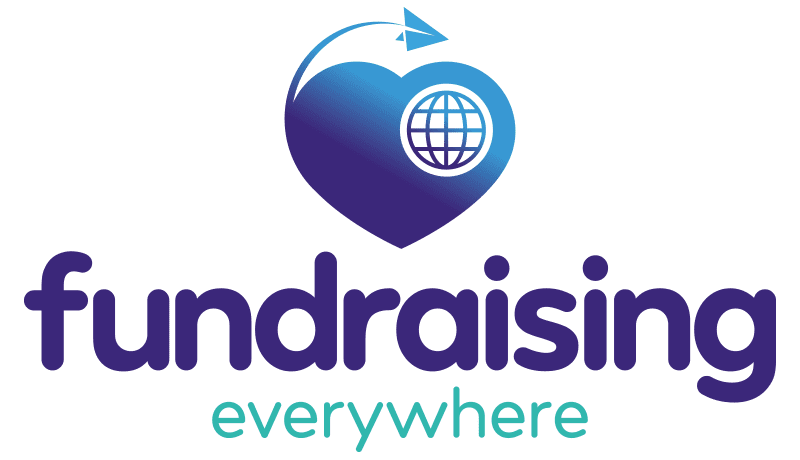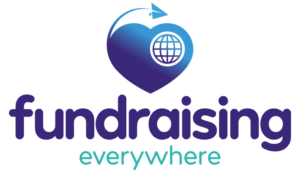
Written by Sarah Tedesco, Chief Operating Officer and Co-Owner of DonorSearch
Legacy giving is growing in popularity across charities of various sizes, missions, and nations. In the UK, 21% of donors aged 40 and up say they’ve included a charitable gift in their wills as of 2023, up from 14% of this demographic in 2010. Additionally, Giving USA reported that bequests (the most common type of planned gift) grew more than any other charitable revenue source in 2023.
While planned gifts can provide impactful funding for your charity, they also pose unique challenges. In particular, many years often pass between a donor committing a legacy gift to an organisation and the charity receiving that large contribution. So, it’s vital for your organisation to maintain strong relationships with legacy donors, starting by expressing your gratitude.
In this guide, we’ll share four strategies to help your charity meaningfully thank its legacy donors and retain their lifelong support. Let’s get started!
1. Express Gratitude Promptly
As soon as you know someone has pledged a legacy gift to your charity, thank them. Even if you plan to recognise them in more elaborate ways later on (as you should!), starting the gratitude process within 48 hours of receiving confirmation of their gift will set your organisation up for a stronger relationship with that donor.
Here are some tips for making these initial thank-yous more meaningful:
- Personalise all messages. Personalisation shows legacy donors that your charity values them as individuals. If you thank them via email, greet them by their preferred name and mention details like their gift type, designation, and past involvement with your organisation. Or, if the donor responds well to phone calls, have a leader or board member at your charity call them to thank them directly.
- Create a planned giving welcome email series. In the weeks after your initial gift confirmation message, follow up with new legacy donors once or twice a week. Send emails explaining your organisation’s current projects and future plans in more detail, and invite donors to deepen their engagement with your charity through activities like volunteering, attending events, and participating in advocacy campaigns.
- Tailor your follow-ups based on donors’ gift designations. Most legacy donors specify that they’d like their contributions to go toward a certain programme or initiative to retain some control over these significant donations. In your welcome email series, make sure to update them on the current status of their chosen initiative so they understand how their gift may help your organisation in the future.
Many charities treat planned gifts as a nice surprise, but it’s more effective to actively promote legacy giving and talk about it openly. In addition to potentially receiving more planned donations, donors will be more likely to tell you they’ve pledged legacy gifts so you can reach out to them sooner.
2. Provide Public Recognition With Consent
After your initial appreciation, go a step further by thanking legacy donors publicly. Not only will you demonstrate to donors how much their contributions mean to your charity, but sharing their stories may also inspire other supporters to make planned gifts.
Some of the best public donor recognition methods for legacy supporters include:
- Your charity’s annual report. Include a ‘Legacy Donors’ section in the customary list of major supporters, and consider spotlighting one or two on separate pages.
- Donor walls. These displays can be physical or digital and may or may not be accompanied by a specific award. In any case, they should set planned donors apart from other contributors.
- Social media or website features. Share short stories about individual legacy donors on social media, or go more in-depth with a blog post or video interview on your organisation’s website.
While many legacy donors will be happy with these forms of recognition, some may prefer to remain anonymous to the public. In these situations, honour donors’ wishes and show all of your appreciation privately.
3. Create a Planned Giving Society
Your charity may already offer memberships, giving programmes, or societies for its monthly, annual, mid-level, or major donors. Legacy donors will also feel appreciated if you invite them to join a dedicated programme or society centred around planned giving.
Once legacy donors have joined the society, continue to show your appreciation by offering them special perks. NXUnite’s membership benefits guide recommends providing incentives like:
- Exclusive society newsletters so legacy donors can keep up with everything going on at your organisation and get a peek behind the scenes.
- Enhanced event experiences such as early-bird registration, unique favours, or bonus raffle entries.
- Discounts on branded merchandise or at your charity shop.
- Society membership cards that legacy donors will be proud to display.
Above all, planned giving societies provide a sense of community, as legacy donors can meet other supporters who share their values and interact more frequently with your organisation’s team. This way, they’ll feel like more connected, active participants in your community.
4. Inform Your Approach With Donor Data
To engage each of your charity’s legacy donors individually, you’ll need to learn a lot about them, and one of the best ways to do this is through prospect research. According to DonorSearch, prospect research allows charities to “gather an immense amount of data—information about donors’ backgrounds, past giving histories, wealth indicators, philanthropic motivations, and more details that help determine prospects’ likelihood of giving.”
Prospecting is particularly useful for identifying potential planned gift donors to reach out to about the opportunity. A good legacy giving prospect should:
- Demonstrate philanthropic tendencies via past donations to your charity or other similar organisations.
- Have a strong affinity for your mission and work based on their personal history, values, and other forms of engagement with your charity.
- Exhibit wealth indicators that specifically apply to planned giving, such as owning property or other significant assets and having a will and life insurance policy.
Securely store this data in your organisation’s database so you can easily reference it while you cultivate and solicit planned gifts. However, you should regularly conduct research on your existing legacy donors as well. This way, you’ll stay up to date on any changes in their financial situation and get deeper insights into their backgrounds that can inform your recognition and retention efforts.
As you implement these strategies, periodically collect feedback from your legacy donors about their experiences with your charity. Not only will you get actionable insights into the success of your recognition efforts, but asking donors for input also helps them feel more valued and appreciated by your organisation.
Ready to grow your legacy and in-memory fundraising? Join our Legacy and In-Memory Fundraising Conference and learn from global experts how to boost gifts in wills and in-memory income.
Voice Your Thoughts 🗣️
Our platform is open to anyone and everyone in the sector that has an opinion, idea, or resource they would like to share to help make our sector better. If you would like write and share something, pop an email over to hello@fundraisingeverywhere.com and we will support you every step of the way to share your voice.
© Fundraising Everywhere.
hello@fundraisingeverywhere.com
+44 333 015 6154
Designed & developed by mtc.




